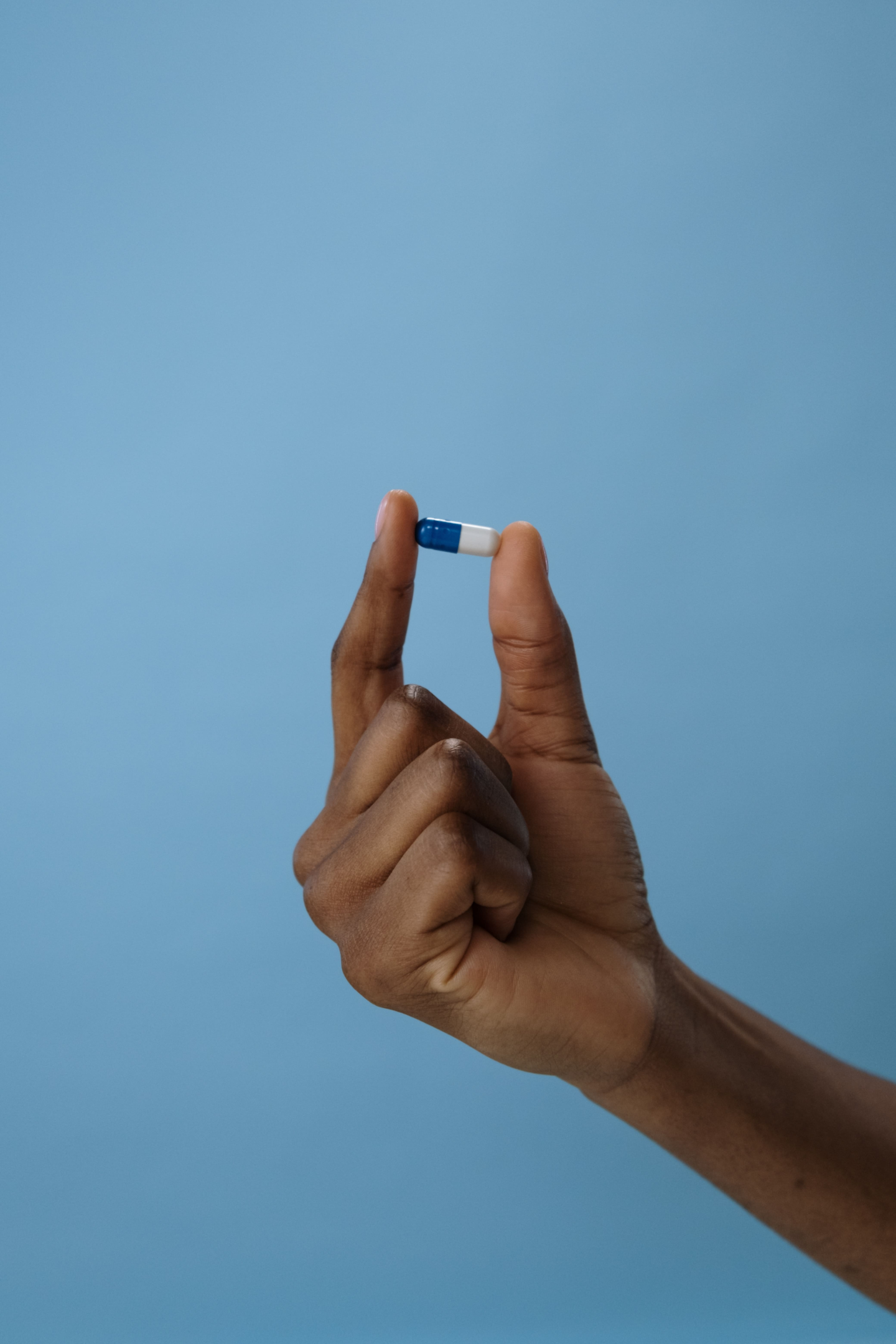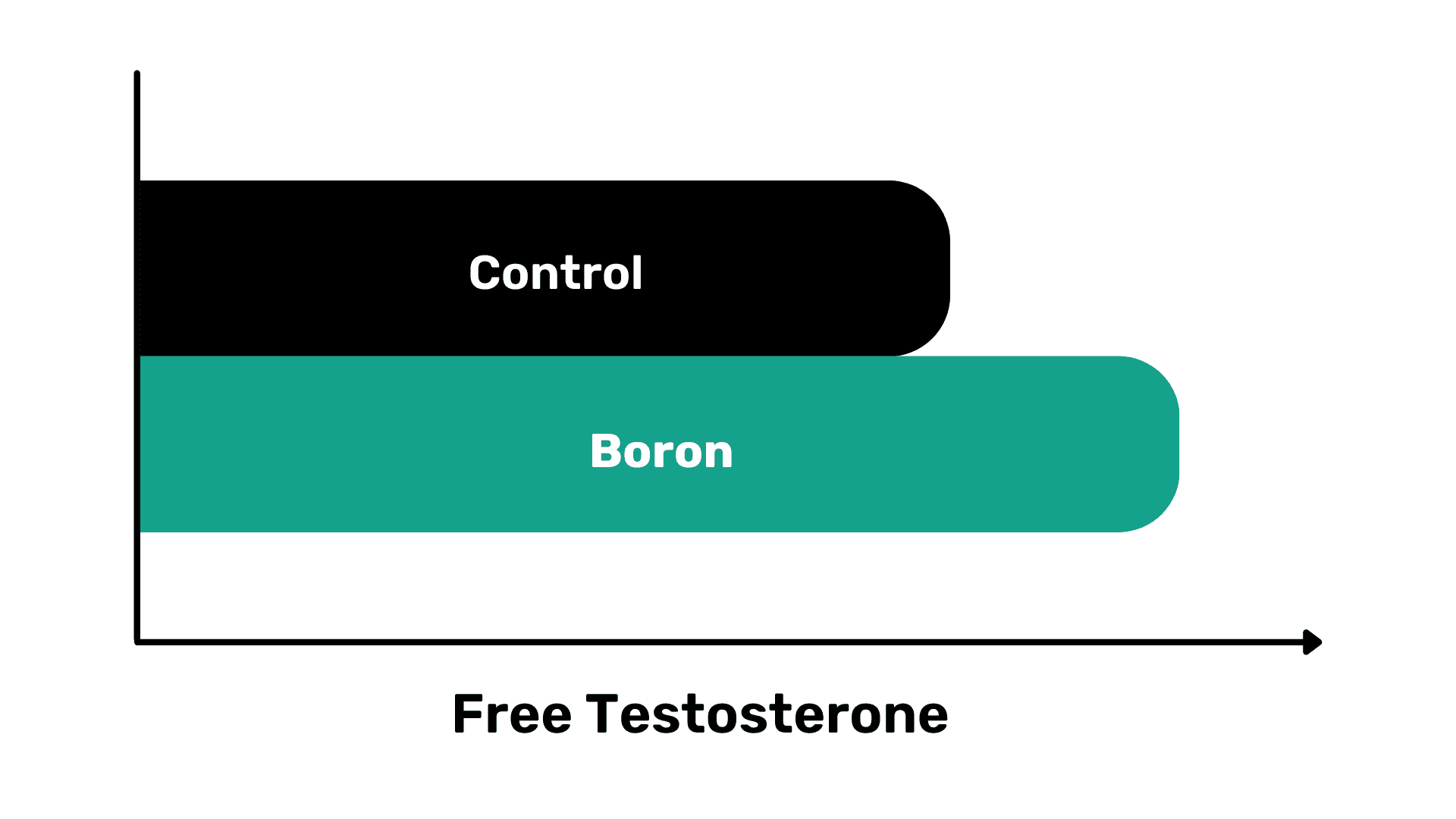
How ZMA Can Boost Your Immune System
Wondering how to boost your immune defences and fight against illness? Discover the science of ZMA and how it can help your immune system.

In our pursuit of optimal health, we often overlook the remarkable, yet understated, role that boron plays in our well-being. Despite being a trace element, boron’s impact is anything but small, especially in the sphere of men’s health.
In the following page, we venture into the world of boron, unearthing its presence in our diet and uncovering its profound influence on numerous health parameters, including the male sex hormone testosterone.

Boron is a trace chemical element, often found within the natural world and, interestingly, within our food supply.
Identified by the symbol ‘B’ and an atomic number of 5 on the periodic table, boron usually mingles with other elements to form various compounds. It’s not found in an isolated state in nature, but rather we encounter it indirectly through its presence in numerous fruits, vegetables, and nuts.
It makes a subtle but significant appearance in our diet, coming from borate-rich soils where our food crops are grown. The concentration of boron can significantly vary depending on the geographical location of the soil and water bodies, affecting the resulting content in food. Elemental boron is not merely an abstract concept reserved for chemistry textbooks, but a real, tangible presence on our plates.

Determining the precise quantity of boron needed for optimal health is a challenging feat, given the various factors at play. Nevertheless, general consensus suggests that a daily boron intake between 1 to 10mg for adults appears to be adequate for supporting essential body functions.
This range can fluctuate based on individual health needs, age, sex, and diet. It’s important to understand that this is not a rigid prescription, but rather a recommended ballpark derived from various scientific studies and dietary references.
Since the National Institutes of Health (NIH) have not established a Recommended Daily Allowance (RDA), no formal recommended dose currently exists. However, research has shown that care should be taken not to exceed a daily intake of 20 mg, which could potentially lead to boron toxicity.

Boron is a trace mineral present in a variety of fruits, vegetables, and nuts. Foods rich in boron include:
It’s worth noting that the boron content of these foods can vary significantly based on the boron concentration in the soils in which they’re grown. Some places in the world have high boron levels in soil, while some are deficient. This variance in soil boron levels leads to differing amounts consumed by the populations of the countries situated on such soil.
For those who may not meet their boron requirements through diet alone, boron supplements offer an alternative. They are available in various forms, such as tablets, capsules, and liquid drops, and can help fill nutritional gaps.
We utilised boron in our original ZMAN+ formula to allow people to maintain optimal health, wherever they are based in the world. Consume ZMAN+ daily to reap all the benefits of boron consumption.

The myriad benefits of boron extend across various facets of health, ranging from bone strength and brain function to hormonal balance and inflammation control. These are summarised below.
The integral role that boron plays in maintaining healthy body tissues is perhaps most evident in its contribution to bone health. Boron influences the metabolism of minerals involved in bone development such as calcium, magnesium, and vitamin D, and in doing so promotes optimal bone growth and strength.
It has also been found to reduce the risk of osteoporosis, a medical condition characterised by weakened bones and increased fracture risk, by enhancing the body’s ability to incorporate calcium into the skeletal system.
It also assists in the production of certain hormones that protect against bone mineral loss. In conditions like postmenopausal osteoporosis, where hormonal imbalance leads to a decrease in bone density, boron’s role becomes especially vital. It ensures the effective utilisation of estrogen and other bone-protective hormones, mitigating the severity of, or completely avoiding, such medical conditions as we age.
Boron plays a surprisingly vital role in the process of wound healing, although its effects are often underappreciated. It functions in the regulation of several enzymes involved in tissue repair and regeneration.
By stimulating the activity of these enzymes, boron accelerates the production of healing cells and proteins, leading to quicker closure of wounds and a decrease in inflammation and pain associated with injury.
Additionally, boron has been shown to enhance the body’s immune response to physical trauma. It boosts the production of antibodies that defend against potential infection at the wound site. By creating a supportive environment for healing, boron not only shortens recovery times but also helps ensure that the healing process proceeds effectively and without complications.
Research into the relationship between boron and cancer has yielded some promising findings. Boron appears to influence several risk factors associated with the development of certain types of cancer. It plays a role in the body’s handling of oxidative stress, which, if uncontrolled, can lead to DNA damage and, subsequently, the unregulated cell growth characteristic of cancer. Additionally, boron can impact the metabolism of certain hormones and nutrients that are linked to cancer risk, such as vitamin D.
As men age, changes in hormonal balance and other biological processes can potentially increase their susceptibility to certain cancers. For instance, prostate cancer is of particular concern for aging men. In this context, boron’s influence on testosterone metabolism could be key. Some studies suggest that boron intake is linked to a reduced risk of prostate cancer, potentially through its effects on testosterone levels and metabolism.
However, while the potential of boron in cancer prevention is promising, it’s essential to remember that maintaining good health involves a multifaceted approach. A balanced diet, regular exercise, adequate sleep, and regular medical check-ups are all crucial components of a cancer-preventative lifestyle. Boron’s contribution to health should be considered as part of this broader strategy, rather than as a standalone solution.
The human body’s inflammatory response is a crucial defensive mechanism against injuries, infections, and diseases. However, when inflammation becomes chronic, it poses a greater risk to overall health, contributing to numerous conditions like heart disease, diabetes, and arthritis. Within this context, the anti-inflammatory properties of boron become particularly valuable.
Boron is thought to inhibit certain enzymes, such as cyclooxygenase enzymes, which play a central role in the inflammation process. These enzymes contribute to the production of inflammation-inducing substances in the blood, such as prostaglandins. In one study, boron supplementation was shown to significantly reduce inflammatory markers (approximately 44% in IL-6, 50% in hs-CRP, and 30% in TNF-alpha).
By inhibiting these enzymes, boron can help reduce the production of these substances, thereby decreasing inflammation in the body. This anti-inflammatory action of boron may help protect against a variety of health conditions associated with chronic inflammation.
The impact of boron on brain function is significant, and an adequate intake of this trace mineral has been linked with better cognitive performance. It aids in the coordination of the brain’s electrical activity, ensuring that neurons fire effectively and improving various aspects of brain function. These benefits are seen across the spectrum of cognitive tasks, from memory and attention to motor control and perception.
For aging men, boron’s role becomes particularly noteworthy. As men age, their cognitive function can sometimes decline due to hormonal changes, among other factors. It can help mitigate these effects, as it plays a critical role in the metabolism of steroid hormones, which are essential for maintaining brain health and function.
Moreover, boron influences the body’s use of key vitamins and minerals implicated in cognitive health. For example, it assists in the metabolism of vitamin D, which has been associated with a lower risk of cognitive decline. Thus, ensuring an adequate intake of boron can support the maintenance of brain health, particularly in aging men.

Boron has been shown to be linked to testosterone levels and efficacy in men. Some key studies and results are listed below.
Free testosterone is testosterone which isn’t bound to Sex Hormone-Binding Globulin (SHBG) and Albumin, and as a result, is more bioactive. This means it has more potency. By increasing the ratio of free to total testosterone, we can increase the efficacy of circulating testosterone, and maximise its effects.
Testosterone effects include, but are not limited to:
Boron is thought to impact testosterone levels in a number of ways. They are summarised below.
Boron has a unique influence on the dynamics of testosterone in the body, particularly with regard to Sex Hormone Binding Globulin (SHBG). SHBG is a protein produced by the liver that binds to sex hormones like testosterone and estradiol, controlling their bioavailability in the body. Boron has been shown to interact with SHBG, reducing its ability to bind to testosterone. This results in an increase in the proportion of free testosterone – the unbound, active form of the hormone – circulating in the bloodstream.
Boron’s interaction with testosterone becomes particularly relevant when considering the natural physiological changes that occur as men age. Over time, men typically experience a decrease in free testosterone levels, a phenomenon often referred to as “andropause.” This decline can lead to several health issues, including loss of muscle mass, increased body fat, mood changes, and decreased bone density.
In light of these challenges, the capacity of boron to increase free testosterone levels could provide substantial benefits. By inhibiting the binding of testosterone to SHBG, it ensures a greater availability of free, active testosterone in the body. This mechanism may help counteract the natural decline in testosterone that occurs with age, potentially alleviating some of the associated health concerns and improving the overall quality of life for an aging man.
Boron’s role in health extends to its influence on Vitamin D and magnesium metabolism, a factor that indirectly impacts testosterone levels. Vitamin D, although primarily known for its role in bone health, has been shown to play a critical role in hormone production, including the male sex hormone testosterone. Low levels of Vitamin D and magnesium have been associated with low testosterone, often manifesting as a testosterone deficiency in aging men.
As boron has been found to increase the body’s ability to metabolise and utilise vitamin D and magnesium, it has the ability to indirectly enhance the production of testosterone. By ensuring adequate vitamin D and magnesium levels, boron indirectly helps to maintain testosterone balance in the body. This is especially significant for those suffering from low testosterone levels or testosterone deficiency, as increasing boron intake could potentially aid in alleviating these conditions and subsequently increase low testosterone levels.
Inflammation levels have also been shown to have a correlation to testosterone levels, with higher levels leading to lower testosterone.
Persistent inflammation leads to an increase in cytokines in the blood (molecules that signal cells in the immune system). These molecules can disrupt the function of the Leydig cells in the testes, which are responsible for producing testosterone. As such, chronic inflammation can reduce optimal testosterone production and lead to lower overall levels of this vital hormone.
Boron’s anti-inflammatory properties can change this. By reducing the inflammation that interferes with Leydig cell function, boron can help to normalise testosterone production. This suggests that maintaining adequate boron levels could potentially aid in supporting testosterone synthesis in the face of inflammatory effects. Consequently, boron can play a significant role in helping to determine testosterone levels, especially in individuals experiencing chronic inflammation.

Boron is an essential trace mineral, integral to the human body, and is found in a diverse range of food items and supplement, from fruits and vegetables to nuts.
This element not only plays a critical role in bone health and wound healing but also potentially reduces cancer risk, thanks to its ability to interact with various hormones and nutrients within the body. Moreover, its anti-inflammatory properties and positive impact on brain function make boron an essential factor in men’s health, especially in relation to testosterone levels.
It has been found that boron can help increase free testosterone, the most potent form of the hormone, by reducing its binding to Sex Hormone-Binding Globulin (SHBG), promoting Vitamin D and magnesium metabolism, and mitigating inflammation.
As such, boron holds significant potential in managing the natural decline in testosterone that occurs with age, and, therefore, in improving the overall quality of life for men. That’s why we included it in our ZMAN+ supplement.
Incorporate boron into your daily routine to unlock your potential and reach your prime.


Wondering how to boost your immune defences and fight against illness? Discover the science of ZMA and how it can help your immune system.

Learn how ZMA can transform your muscle recovery and athletic performance, allowing you to reach your health goals

Studies have shown that testosterone levels are falling. Read this to find out why and what can be done to fix it.

Discover how Vitamin B6 reduces fatigue through energy metabolism, with key facts and intake recommendations.

Complete the form NOW to receive the free ebook and take on the challenge.